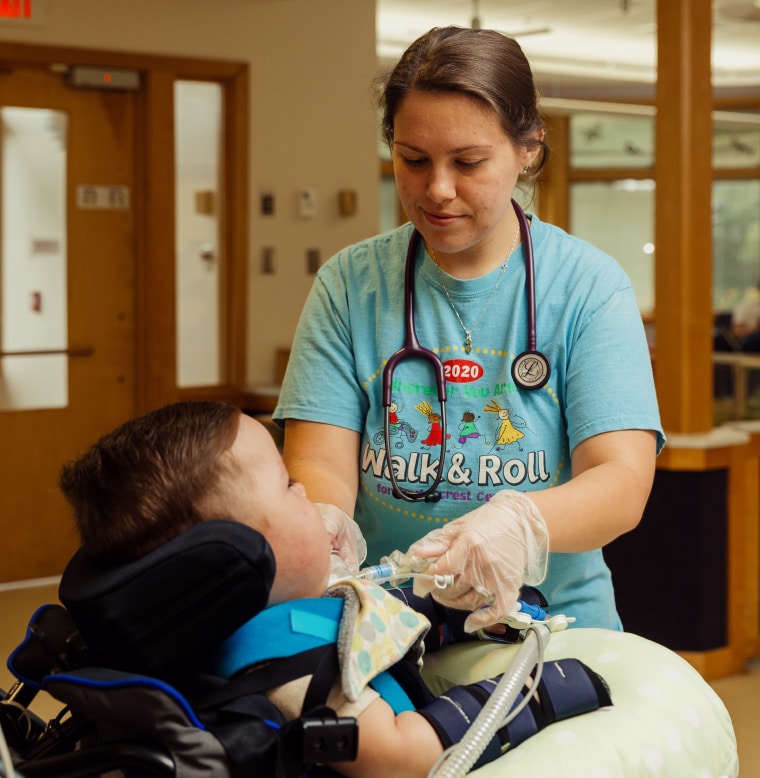Respiratory Care Program
The goal of our respiratory care program at Cedarcrest is to help kids breathe easier. Respiratory therapists are available to treated chronic lung conditions like asthma and bronchopulmonary dysplasia (BPD) as well as acute conditions such as bronchitis and pneumonia.
Ventilator Weaning
Our ventilator weaning program has proven to be very successful, freeing children from the restrictions of a breathing machine. No two children are the same and we approach each child individually, adjusting the ventilators and challenging the child according to their unique needs and ability. With continuous monitoring, this gradual and flexible method of weaning ventilator support strengthens muscles and builds endurance without placing undo stress on the child. Best of all, it allows the children to attend school, play, and participate in activities without interference.
Tracheostomy Care
Our therapists play an important role for children with tracheostomies, beginning with a consistent schedule for cleaning and changing trachs to prevent infection. Respiratory therapists work closely with specialists in pulmonology, otolaryngology and speech therapy to optimize the size of tracheostomy tubes, use speaking valves (both on and off ventilators), and work toward eventual decannulation if possible.

Respiratory Services
Each bedroom at Cedarcrest is designed to be homey and comfortable while containing modern overhead mechanical lifts and full cardiac and respiratory monitoring equipment. Our respiratory therapist is a key part of the Cedarcrest health care team of professionals focused on helping maintain and improve medical conditions so kids can thrive in their daily activities.
Cedarcrest’s Respiratory Care Program services include:
- Airway management (invasive and non-invasive)
- Trach tube management, Passy Muir valves, capping, downsizing, and decannulation
- Ventilator management and weaning
- Capnography and oximetry monitoring
- Non-invasive ventilatory support (BiPAP, CPAP, High Flow)
- Secretion mobilization, chest physiotherapy, and use of clearance devices
- The Vest Airway Clearance System, MetaNeb and the VitalCough machine
- Respiratory medication management and delivery
- Respiratory assessments and recommendations
- Respiratory muscle evaluation, exercise, and strengthening
- CPR and emergent response
- Staff, family, and patient teaching